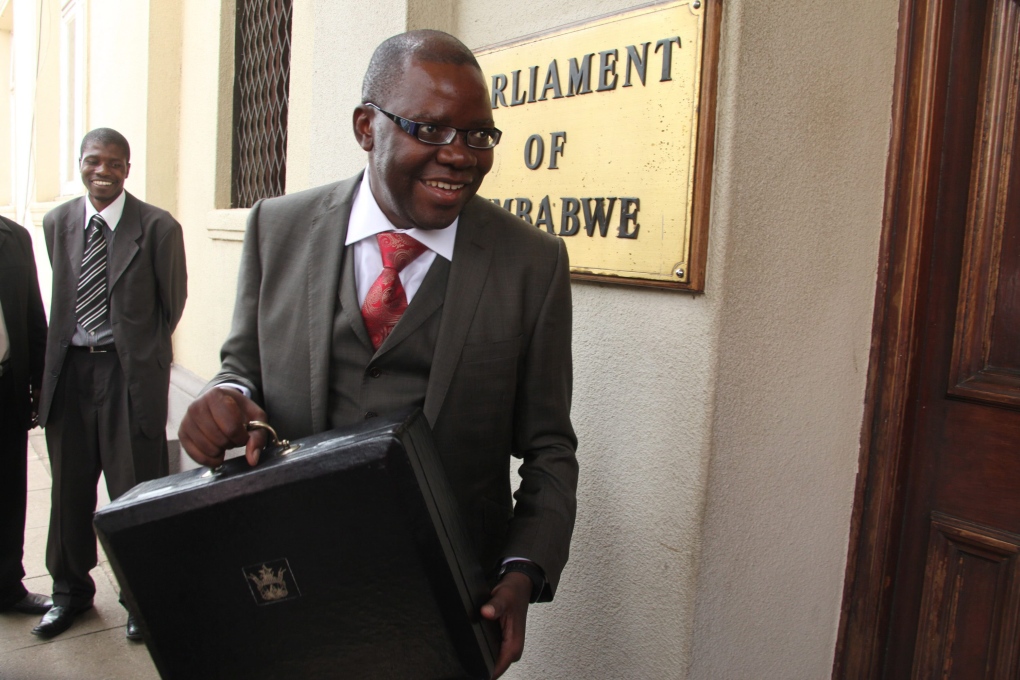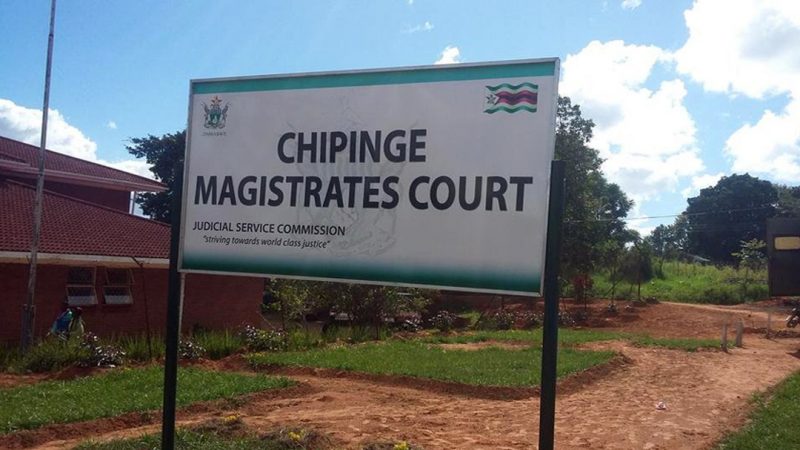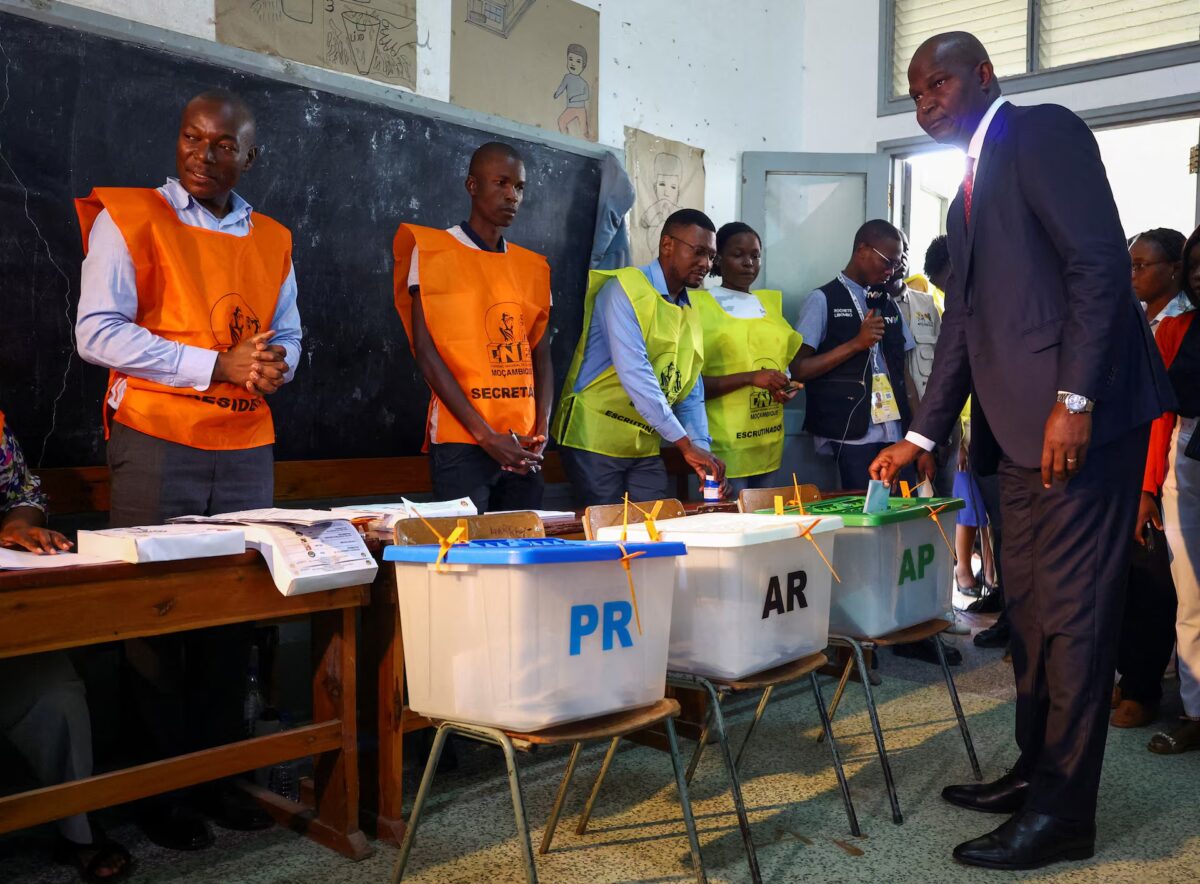HARARE – Thirty-one-year-old father of two Albert Dzikamai Chekure was milling around at the corner of Angwa Street and Nelson Mandela Avenue in Harare on April 18 when he was approached by an undercover female police detective.
The detective wanted mobile phone airtime for ZiG130, Zimbabwe’s new currency, in exchange for US$10.
Shortly after Cheruke used his phone to make the purchase through his bank, and received a US$10 note from the police officer, he was arrested and charged with the crime of contravening exchange control regulations which prohibit the purchasing or selling of foreign currency without approval.
The City of Harare meter reader is one of over 400 people now held without bail in Zimbabwe’s prisons for the same crime after bail was denied by Harare magistrate Ethel Chichera. The magistrate said Chekure faces a very serious offence and the possibility of a lengthy custodial sentence, while expressing the opinion that there was need to protect the new currency from black market speculators.
Now former finance minister Tendai Biti, a human rights lawyer, has taken up Chekure’s appeal at the High Court and argues that he and hundreds of others are being held on an invalid charge because, he maintains, the United States dollar is legal tender in Zimbabwe until 2030 and therefore cannot be regarded as foreign currency.
In the bail application filed on May 16, Biti argues that Chekure should not have been denied bail as the charge is “non-existent.”
“The answer is provided in section 2 of the Exchange Control Regulations 1996,” said Biti.
He argues that the regulations define foreign currency as any currency, other than Zimbabwean currency or gold, which is legal tender in a country other than Zimbabwe.
“Put in simple terms, foreign currency simply refers to legal tender of another country. Thus, it is unlawful for any Zimbabwean to transact and deal in foreign currency defined to mean the legal tender of another country without exchange approval. However, the US dollar that the appellant (Chekure) dealt with is not foreign currency in Zimbabwe rather it is legal tender in Zimbabwe,” Biti said in a 37-page court application.
Giving a chronological history of Zimbabwe’s currency changes, Biti said from 2009, Zimbabwe introduced the US dollar as a currency and legal tender in Zimbabwe.
“Once it is accepted that the US dollar is a currency and is legal tender in Zimbabwe, it is not foreign currency for the purposes of use in Zimbabwe by way of Section 44A of the Reserve Bank Act as read together with Section 2 of the Exchange Control Regulations,” he said.
Biti said if the US dollar in Zimbabwe is not foreign currency, then Chekure and others like him cannot be prosecuted for exchange control breaches.
The lawyer said in March of 2009 the dollarisation of the Zimbabwean economy that had been announced through the 2009 national budget was made legal through the Finance Act No.2 of 2009.
“The amendment also deemed certain currencies to be legal tender. This basket of currencies include the US dollar, the Euro, the British pound, Chinese Yen, the South African Rand and the Botswana Pula. The aforementioned amendment effectively made certain foreign currencies legal tender in Zimbabwe,” he explained.
He said any doubt about this was confirmed by the Exchange Control (Amendment) Regulations 2017 (No. 5) which were published as Statutory Instrument 122A of 2017.
SI 122A of 2017 amended the definition of currency in Section 2 of the Exchange Control Regulations of 1996 published in Statutory Instrument 109 of 1996 to mean the coin and paper money of Zimbabwe or of a foreign country that is designated as legal tender and which is customarily used and accepted as a medium of exchange in the country of issue.
“The above definition makes it clear that currency in Zimbabwe means the coin and paper money of Zimbabwe or the foreign currency that is designated as legal tender and which is customarily used and accepted as a medium of exchange in the country of issue,” he said.
He said if Zimbabwean currency includes foreign currency, dealing with the same cannot be an offence.
“In other words when Chekure does what he is alleged to have done on the 18th of April 2024, he did not break any law. The above definition of currency as introduced by SI 122A of 2017 still remains in our statute book as of today. This therefore is the end of the matter,” he said.
Biti also said on February 22, 2019, the president issued the Presidential Powers (Temporary Measures) (Amendment of Reserve Bank of Zimbabwe Act and Issue of Real Time Gross Settlement Electronic Dollars (RTGS Dollars)) Regulations 2019 published as SI 33 of 2019.
He argues that the SI however, did not outlaw the use of foreign currency as legal tender in Zimbabwe.
“In other words, there was never an attempt to reconcile the dedollarisation process effected by the Finance Act No. 2 of 2019 and the hitherto existing system. The left hand did not know what the right hand was doing. Or more appropriately the left hand did not know what the right hand had done before,” he said.
The dedollarisation was a failed process, he argues, and the chief architect of the failure was the government itself which allowed the US dollar as legal tender in many transactions for as long as Zimbabweans could demonstrate that the foreign currency was “free funds.”
“If Chekure were to be prosecuted, it would have to be shown that the US$10 herein received was not from free funds. Chekure contends that they weren’t any compelling reasons to deny him his freedom. It is common cause that the appellant allegedly dealt with the sum of US$10. There is no way in this world that appellant will ever be subjected to a custodial sentence for illegally dealing with a US$10. It’s not possible. It would be a travesty of justice,” he argued.
The lawyer said the fact that the magistrate expressed a political opinion connected to the need to protect the new local currency cannot be used to deny Chekure his freedom.
“Citizens should not be criminalised for merely trying to live and continuing with their own business. Moreso, when it is clear that innocent citizens are being criminalised as a result of the mismanagement and mishandling of the economy by the authorities,” Biti said.
Biti said the lower court erred in ignoring that it was in the interest of justice to release his client.
The High Court was told that there was no evidence given to support allegations that Chekure is a foreign currency dealer.
“He is fully and gainfully employed at the City of Harare,” he said.
Biti said while his client is paid his entire salary in ZiG, his obligations are monetised in US dollars.
“For instance he rents a house in Glenview 7 where he has to pay rent in the sum of US$120. The school fees of his child is required in US dollars. He does not own a car and riding an omnibus to and from home requires payment in US dollars in the sum of US$3 per day. The accused therefore transacted to obtain US dollars for his survival.
“The state and the country’s laws are thus criminalising the innocent activities of the accused and millions of other Zimbabweans who are in exactly his position. These millions of Zimbabweans include prosecutors, police officers, magistrates and judges who are made to earn in ZiG yet the rest of their life is monetised in US dollars.”
Biti also said US dollars are required to pay for electricity, fuel, passport fees, vehicle licence fees, groceries and rentals yet the government is paying people in ZiG.
“Foreign currency is not sold in banks and until recently, only a few privileged powerful people had the right to approach and purchase US dollars at the Dutch Auction system. There is no provision for ordinary citizens such as Chekure to purchase US dollars.”
He said finance minister Mthuli Ncube recently acknowledged that foreign currency was not available to ordinary citizens in banks. The acknowledgement by the minister, according to the lawyer, is confirmation of the fact that Exchange Control Regulations, and the unavailability of US dollars in a dollarised economy is making innocent persons such as his client criminals.
“They’re not criminals. It is thus ridiculous that the government creates a situation where the economy is dollarised, businesses and the government itself demand payment in US dollars yet citizens are paid in a local currency that the government itself and businesses refuse. The appellant is not a criminal and should therefore be released on bail.”
Biti said the magistrate ignored the factors justifying the refusal of bail provided in law while “making a political ruling to the effect that the government of Zimbabwe has just introduced a new currency ZiG and that Chekure’s actions were intended to destabilise ZiG and the economy, and to cause disaffection to the ZiG by members of the public.”
“Firstly, the accused person is not facing a serious offense. Dealing with foreign currency in the sum of US$10 does not warrant a custodial sentence. Even if it was a serious offence, a point made but not conceded, the seriousness of the offence is no reason to deny bail,” Biti said.
He also rejected the lower court’s finding that Chekure was likely to abscond, arguing that it is “not sufficient for the state to make a bold assertion that a ground for refusing bail exists” without providing facts.
Biti added: “The court aquo’s ipse dexit to the effect that Chekure and others like him were on a spree to undermine the newly introduced ZiG is a dangerous non-legal statement that cannot and should not have been considered by the court. That statement is clear evidence that extraneous political factors which are legal factors were taken into account in the determination of Chekure’s case.
“The fact of the matter is that the courts cannot be used to prop up questionable monetary and fiscal policies. The court aquo’s misdirection could never have been more glaring.”
Biti asked the court to grant Chekure free bail. The matter is pending.
DOWNLOAD TENDAI BITI’S BAIL APPEAL ON BEHALF OF ALBERT CHEKURE: CLICK HERE
















